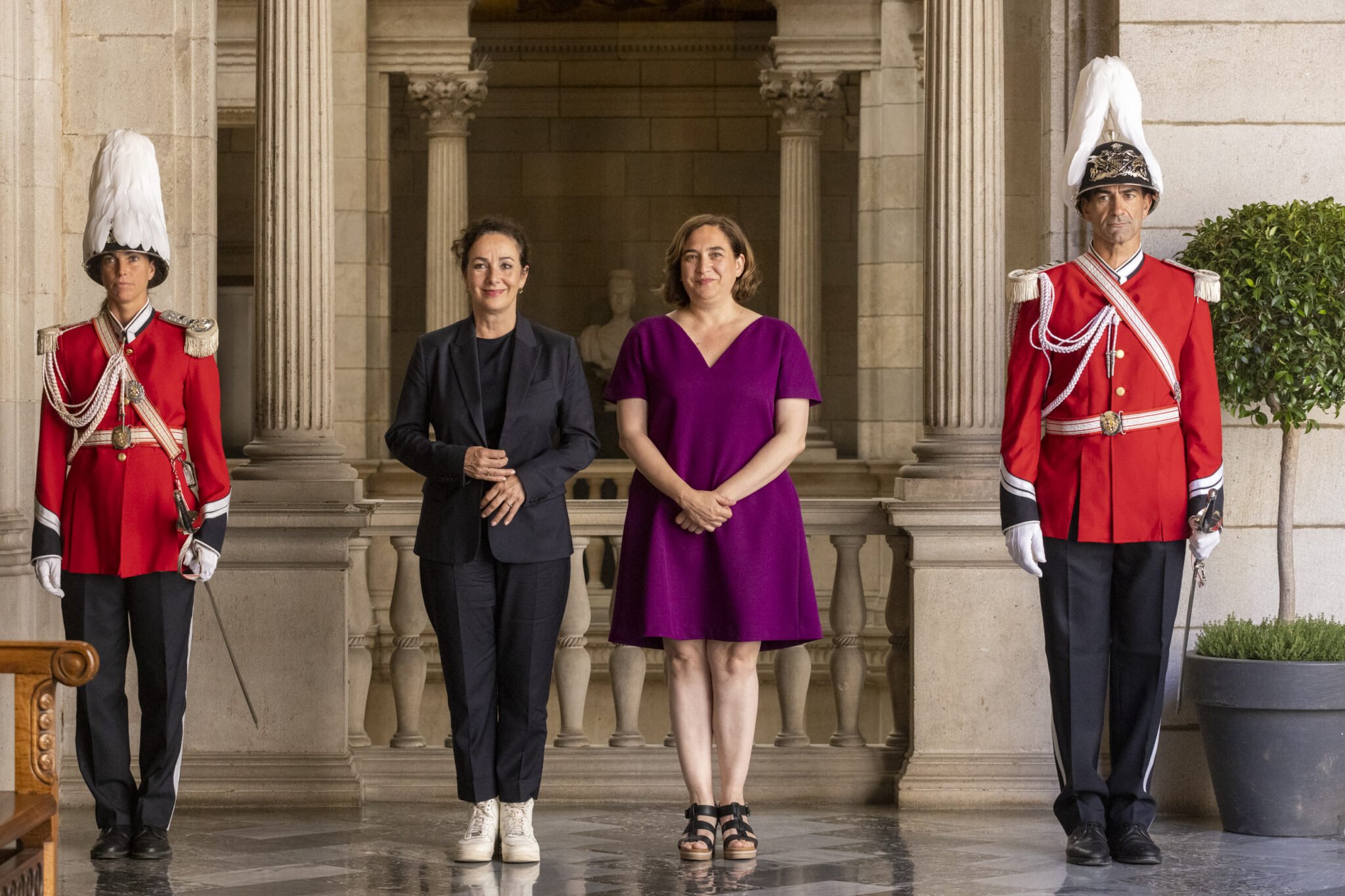The tourists are back, and so are some of the problems of the sector's huge presence in Barcelona. This Friday, the mayor of Barcelona, Ada Colau, announced the reactivation of the shock plan against illegal tourist flats, a plan created under the current municipal government that gave good results and put an end to the uncontrolled proliferation of this activity. "With the recovery of tourism after the pandemic, we do not want this activity to return to the city," said Colau, who recalled that economic activity "works better if it is regulated." She mae the announcement at a press conference alongside with Femke Halsema, the mayor of Amsterdam, with whom she had met to address the challenges shared by the two cities, including the regulation of tourism.
According to the city council, the reactivation of the plan has allowed a team of more than 70 people to get to work, including 25 "viewers" who do their job on the street, to prevent the return of the illegal activity. More than 21,000 ads have already been tracked on digital platforms, and some 360 flats have been detected offering tourist activity without permission. The accommodation platforms will be asked to immediately withdraw these announcements and the corresponding procedure will be initiated, which could end with fines of between 3,000 and 60,000 euros. It is also planned to launch an information campaign to remind visitors not to stay in unlicenced flats, and to tell the public that tourist accommodation services cannot be offered without permission.
Barcelona and Amsterdam, allies
As well, Colau expressed her gratitude at the press conference that Amsterdam, a city that is an economic motor of Europe, with a powerful economic hub and strong tourist traction, is working together with the Catalan capital to exchange experiences and knowledge. In fact, the two cities have been working together for some time and have developed similar policies, such as the regulation of hotels in the centre and a sustained fight against the activity of illegal tourist flats, as well as curbing overcrowding and committing to a sustainable tourism that looks to the future.
The mayor of Amsterdam praised Barcelona's leadership and the commitment of the two capitals to work in a network and in coordination with other European cities. Femke Halsema has also come out in favour of limiting the activity of airports, especially with regard to short flights that have an alternative by rail. The mayor of Amsterdam emphasized the importance of continuing to collaborate and share experiences in order to work for sustainable and non-crowded tourist activity. The two mayors also spoke about the situations of the airport and the port in their respective cities.

